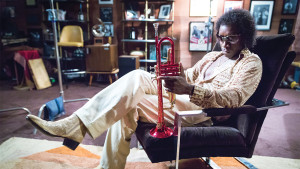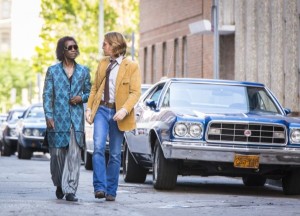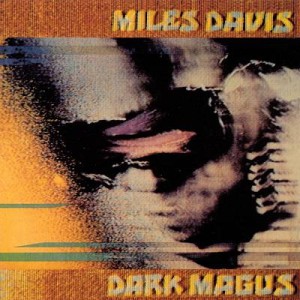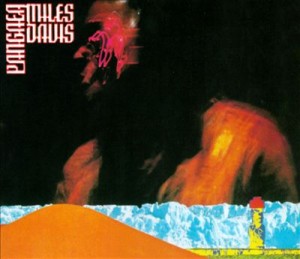Soon, almost a month will have gone by since Miles Ahead was released and I’m still wondering whether it was worth making a movie that conceives of Miles Davis as a hip-limping, gun-toting, coke-snorting, jump-suit-wearing, jheri-curled amalgam of Han Solo and John Shaft.
Part of me wishes this summed up my complicated feelings about Don Cheadle’s dream (in more ways than one) project because I’m aware that what I just wrote seems to embed me among the jazz-snob coterie weighing in with sundry, often incendiary objections. Within that coterie, however, I lean towards those balancing our misgivings with resignation over what it takes these days to make, and sell, a movie. And with resignation comes qualified gratitude that Miles Ahead is somehow still making its way through the entertainment-industrial complex with so-far-not-catastrophic box-office returns and a mostly positive critical reception.
Still…
I mean, it’s not as if I could imagine, or even wanted an actual bio-pic with all the decorous solemnity and self-defeating finicky-ness too often accompanying the genre. (Even when such movies are careful with the facts, they still somehow ring false, which means John Ford’s often-regurgitated advice about “printing the legend” is more pragmatic than anything else.) To the extent that Cheadle’s near-hallucinatory pastiche of Davis’ self-imposed exile from the outside world during the late 1970s departs from this dubious norm, I think the movie is an intriguing heave into the cosmos. Too often, however, the blurriness seems less aesthetic calculation than technical difficulties. Some of the interior scenes are cluttered and awkwardly staged. Plus there’s an overall problem with “flow,” which I’m not using as rappers do, but with respect to transitions between scenes, whether flashbacks or in the movie’s present day. Cheadle, assuming he gets another shot at directing a feature (and I think he should), should acquire greater facility with this craft. But for now, as a filmmaker, he’s a hell of an actor – which, as you’ve heard, he proves throughout Miles Ahead.
The greatness of Cheadle’s performance isn’t just in the way he successfully appropriates Davis’ raspy voice, glowering intensity and physical tics. All those things, however impressive, isn’t acting so much as impressionism — which in a movie that leans heavily on impressions would blend with, if not thicken the surrounding goo. It’s Cheadle’s all-or-nothing engagement with Davis’ interior struggles that both evokes and epitomizes the intimacy of Davis’ art – and the abiding faith we kept in Miles through all his transitions and phases. It’s a performance that is most electrifying at those moments when Cheadle’s Miles is either in repose or contemplation; when he isn’t talking or looking at anything except his horn, which at times seems as unfamiliar or as vaguely threatening to him as the future. The tenderness and vulnerability Cheadle summons in his portrayal doesn’t surprise the already indoctrinated. But they are as immersed in its evocation as those whose first encounter with this mercurial personality may inspire them to probe the real deal’s recorded output.
Certainly, it’s a greater inducement than the woozy exhortation delivered by Dave Braden (Ewan MacGregor), the dissolute Rolling Stone “journalist” apparently coaxed into existence by studio executives who believed even the central presence of a black musical genius couldn’t guarantee a motion picture being made, much less distributed, without a White Guy to ride shotgun. “You got laid to this man’s music,” Braden scolds a bleary-eyed student drug dealer, “and you don’t even know who he is!” It’s not the first time a finished movie entered the marketplace still selling its premise. But it doesn’t make this boosting any less obnoxious.
MacGregor, to his credit, makes the best out of his otherwise thankless task. But his character is by no means the movie’s biggest problem. That comes during a physical altercation between Miles and his wife Francis Taylor (the stunning Emayatzy Corinealdi) that, as depicted in the movie, seems to have happened because Taylor goaded Davis into throwing the first punch. Whether this is what happened or not, I’m disquieted by the scene’s implication that Davis’ widely authenticated serial abuse of the women in his life was a.) brought upon themselves and b.) a relative anomaly in his behavior. That Miles Davis’ smoldering rage could often explode into violence against women is one of the many difficulties those of us who cherish his art struggle to acknowledge, if not accept. (Cognitive dissonance, folks: never easy and rarely pretty.) Since Cheadle did far more work than I did to realize the vision, I’m going to assume he knows this and, thus, knows what he’s doing here. It still chews at me.
I suppose, though, that part of what makes this Miles Ahead a conspicuous product of its subject’s legacy is the way it leaves you at the end: With more questions and implications to sort through than hard resolutions. It’s how Davis left things when he left the planet. It’s how so many of the albums he recorded from the mid-1960s to the bitter end lost listeners who couldn’t keep up with his own inquiries into form and function.
And with all my qualms about the movie, I can also say that the best thing it did for me once it was over was send me back to my bulging Miles Davis shelf; not to absorb myself yet again in Kind of Blue, Round About Midnight, Nefertiti or even Bitches Brew, but in the extended electronic performances from the early 1970s that, in toto, left me somewhat bewildered, even aggrieved over what I thought was overindulgence and even sloth on Davis’ part. Having re-acquainted myself with the vagaries of Dark Magus, Pangaea and Agharta, I now recognize many aspects to the amplified riffs and tempo flexing that given a present-day cutting edge patrolled by the likes of Flying Lotus and Kendrick Lamar (with whom Miles, if he were still alive, aware and active today, would love to forge new sonic provocations) sound more prophetic than meandering. I should have known that somehow, someway, Miles Davis will always find a way of messing with your mind, calling bullshit on your home-made conventional wisdom. I may even change my mind about the movie someday. But not for a good while.





